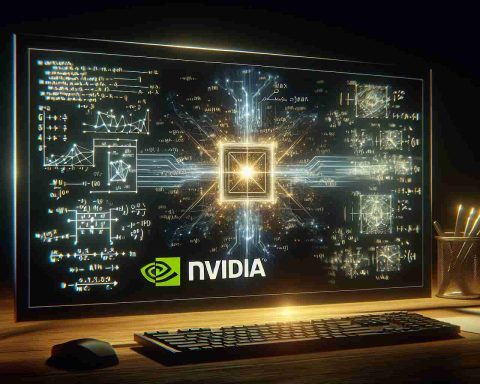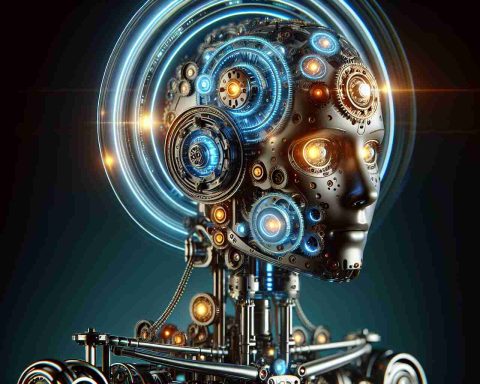Microsoft Refines Agreement with OpenAI Amidst New AI Expansion
In a significant turn of events, Microsoft has updated its agreement with OpenAI following the latter’s announcement of a major collaboration with Oracle and Japan’s SoftBank. This ambitious joint venture aims to establish up to $500 billion worth of AI data centers across the United States, as revealed during a high-profile event at the White House.
The initiative, dubbed “Stargate”, is designed to bolster the U.S.’s competitive edge in artificial intelligence, particularly against rivals like China, utilizing advanced chip technology from Nvidia. Since 2019, Microsoft has partnered with OpenAI, holding exclusive rights to develop computing infrastructure for its AI projects. Recently, Microsoft confirmed that OpenAI is permitted to expand its capabilities for model training and research, marking a pivotal moment in their collaborative journey.
This new venture will operate as an independent entity, with OpenAI having a stake and governance rights. A board led by SoftBank’s CEO Masayoshi Son will oversee operations, which also includes other investors like UAE’s MGX. Despite these developments, Microsoft has emphasized its ongoing exclusive rights to OpenAI’s API, which are vital for business clients and developers. Revenue-sharing agreements and other core elements of their partnership will remain unchanged through 2030, ensuring a solid framework amid the evolving landscape of AI technology.
AI Alliances: Shaping Tomorrow’s Economy and Society
The recent developments in the partnership between Microsoft, OpenAI, and other key players signal a transformative shift in the global landscape of artificial intelligence. This collaboration, particularly through the Stargate initiative, signifies a profound investment in the future of AI, with potential ramifications reaching far beyond technology.
As artificial intelligence continues to integrate into everyday life, the implications for society and culture are substantial. Enhanced AI capabilities promise to revolutionize industries such as healthcare, education, and transportation, fostering innovation that can lead to improved quality of life. However, this rapid advancement also raises critical ethical questions regarding data privacy and job displacement, as automation may outpace workforce adaptation.
The economic impact could be staggering, with projections suggesting that AI’s contribution to the global economy could reach up to $15.7 trillion by 2030, according to PwC. As AI technologies grow more sophisticated and accessible, regions that strategically invest in AI infrastructure—like the collaboration between Microsoft and SoftBank—may gain significant economic advantages, shaping new industrial paradigms.
Moreover, the environmental stakes cannot be overlooked. The AI infrastructure necessary for these advancements often demands substantial energy and resources. Moving forward, the industry must consider sustainable practices to mitigate potential adverse effects on the environment—even as it strives to promote efficiencies and innovations that could lead to greener solutions in other sectors. This dual focus on growth and sustainability will be critical in determining the long-term viability of these advancements in artificial intelligence.
The Future of AI: Microsoft and OpenAI’s Game-Changing Partnership
Microsoft Refines Agreement with OpenAI Amidst New AI Expansion
In a pivotal shift within the artificial intelligence industry, Microsoft has updated its longstanding partnership agreement with OpenAI following OpenAI’s recent announcement of an ambitious collaboration with Oracle and Japan’s SoftBank. This new initiative, known as “Stargate,” is set to create up to $500 billion worth of AI data centers across the United States, a significant step aimed at enhancing America’s competitiveness in the AI sector against global rivals like China.
Key Features of the New Agreement
1. Expansion Capabilities: The updated agreement allows OpenAI to broaden its capabilities for model training and research, paving the way for innovative advancements in AI technologies.
2. Independent Operation: The Stargate initiative will operate as an independent entity while still retaining significant involvement from OpenAI, which will hold a stake and governance rights.
3. Leadership Structure: The operations will be overseen by a board led by SoftBank’s CEO, Masayoshi Son, ensuring strategic direction and oversight.
4. Nvidia Collaboration: The project utilizes advanced chip technology from Nvidia, reflecting a strong emphasis on high-performance computing necessary for AI advancements.
Pros and Cons of the Partnership
Pros
– Accelerated AI Development: The collaboration is expected to expedite research and development in the AI sector, leading to more robust AI applications.
– Enhanced Computing Infrastructure: The establishment of data centers will significantly improve the available computing resources for AI training and deployment, benefiting various sectors.
Cons
– Concentrated Power: The partnership may lead to a concentration of power in the AI sector, raising concerns about monopolistic behaviors.
– Geopolitical Implications: Strengthening the U.S.’s AI capabilities could escalate tensions with rival nations, particularly China.
Use Cases for the Technologies
– Enterprise Solutions: Businesses leveraging OpenAI’s technologies through Microsoft’s API can anticipate advancements in automation, customer service, and data analytics solutions, revolutionizing their operations.
– Healthcare Innovations: Enhanced AI capabilities will facilitate breakthroughs in diagnostics, personalized treatment plans, and streamlined administrative processes.
– Financial Services: Improved AI models can assist with fraud detection, risk assessment, and customer service in the financial sector.
Limitations to Consider
While the new agreement offers various benefits, potential limitations exist:
– Dependency on Microsoft: Companies relying on OpenAI’s API might face challenges tied to Microsoft’s strategic decisions.
– Technological Constraints: The performance of AI applications can be limited by the existing hardware capabilities and the rate of technological advancement in the chip sector.
Market Analysis and Predictions
As AI technologies evolve, this partnership is set to have a profound impact on the market landscape. Analysts predict a surge in demand for AI solutions that leverage the advancements postulated by the Stargate initiative. Companies that integrate these innovative AI technologies will likely gain a competitive edge, positioning themselves favorably in both the national and global markets.
Innovations and Sustainability
The Stargate collaboration aims not only for economic gains but also emphasizes sustainable practices in AI development. As awareness grows regarding the environmental impact of data centers, the initiative likely incorporates practices that focus on energy efficiency and lower carbon footprints.
For more insights into Microsoft’s innovations, visit Microsoft’s official page.
In conclusion, Microsoft and OpenAI’s refined agreement marks a significant milestone in the ongoing evolution of artificial intelligence, highlighting a commitment to expanding capabilities while navigating the complex landscape of technological advancement and international dynamics.












